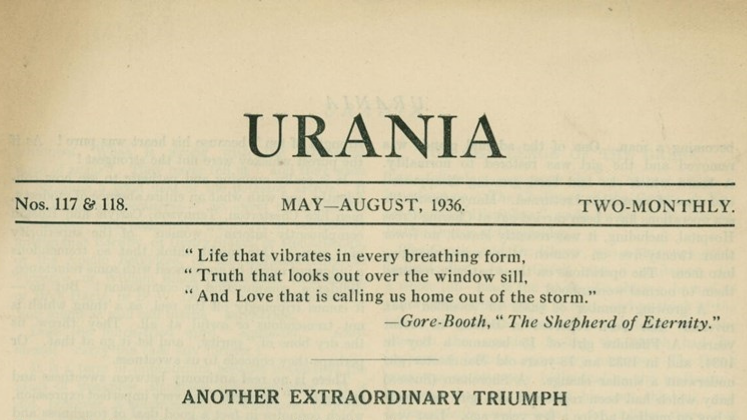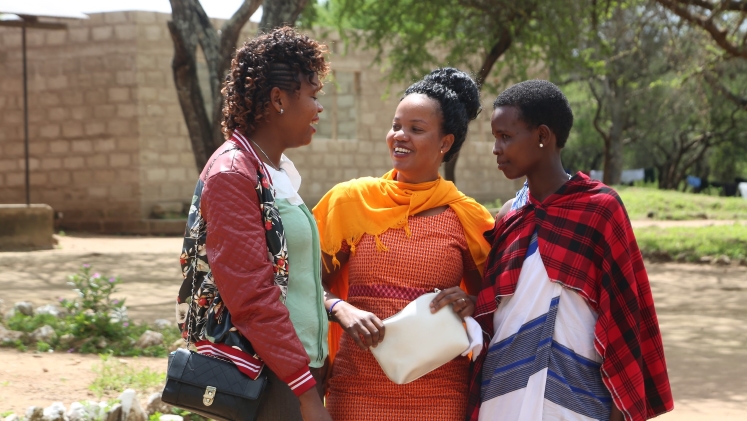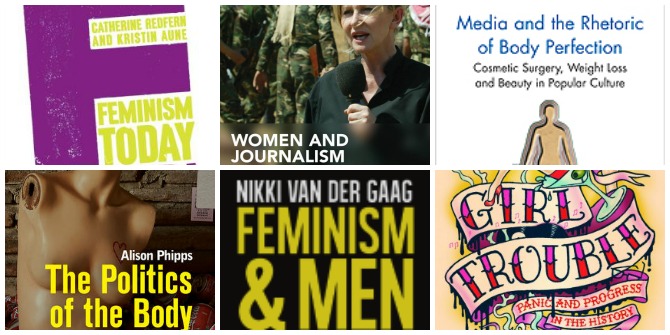 Considering the conditions, maintenance, and interpretation of political violence, the authors contributing to Gender, Agency and Political Violence analyse the multiple ways in which acts of violence, strategies of resistance, and efforts at conflict resolution are gendered. Featuring chapters on emotion and masculinity alongside The Troubles, and the political rationality of female suicide bombers, Megan O’Branski finds an intriguing and thoughtful contribution to critical theory scholarship.
Considering the conditions, maintenance, and interpretation of political violence, the authors contributing to Gender, Agency and Political Violence analyse the multiple ways in which acts of violence, strategies of resistance, and efforts at conflict resolution are gendered. Featuring chapters on emotion and masculinity alongside The Troubles, and the political rationality of female suicide bombers, Megan O’Branski finds an intriguing and thoughtful contribution to critical theory scholarship.
 Gender, Agency and Political Violence: Rethinking Political Violence. Linda Åhäll and Laura J. Shepherd (eds). Palgrave Macmillan. March 2012.
Gender, Agency and Political Violence: Rethinking Political Violence. Linda Åhäll and Laura J. Shepherd (eds). Palgrave Macmillan. March 2012.
Gender, Agency, and Political Violence is an edited volume by Linda Åhäll and Laura J. Shepherd that focuses on the ways in which violence, resistance, and resolution are gendered, through an examination of the constitution of gendered subjects and agents. The authors highlight the necessity for empirical evidence in the critical examination of these subjects, which they call “contextualized analysis”. The book is organized into three thematic sections: “Violent Subjects”, “Reason/Rationality”, and “Emotion/Emotionality”. This organization presents in its own right an interesting gender dynamic, as the second and third parts establish and then address both sides of the gender binary. Each section contains writings that seek to problematize this binary by inverting the anticipated subjects. For example, through an investigation into the political rationality of female suicide bombers, and a focus on the emotional experience of republican prisoners in the notorious men’s prison at Long Kesh in Northern Ireland.
In the introduction to this volume, Shepherd explores the themes of gender, agency, and political violence through a post-structuralist lens. She highlights what she calls “the common thematic concerns of all three concepts: power” (p.3). In keeping with Judith Butler, she argues that of these three concepts, gender is primary, “because conventionally foundationalist concepts of agency and political violence always presume a subject” (p.4). She warns in her introduction that the post-structuralist approach generates more questions than it answers but that I don’t think this is a bad thing” (p.4). I agree on both counts. The chapters of Gender, Agency and Political Violence raise many interesting questions that will intrigue scholars of gender, violence, and critical theory.
“Reason/Rationality” is organized around concepts typically associated with masculinity. In her essay, “Power and Gendered Rationality in Western Epistemic Constructions of Female Suicide Bombers”, Tanya Narozhna argues that the Western discussion of women who engage in this type of political violence cements notions of power and gender through its ostensibly neutral and objective discussion (p.80). The constructions of female suicide bombers produced by this Western epistemological foundation disavow the agency of the women who decide for whatever reason to end their lives alongside the lives of others. Narozhna argues that women do not choose their martyrdom, but rather “have been so profoundly victimized prior to committing their final acts …[that] they are led into violence” (p.83). “Their agency being summarily dismissed”, she says, “these women are portrayed as desperate, powerless, confused and oppressed victims of non-Western patriarchy” (p.83). This summary, she concludes, excludes female suicide bombers from rationality and reason as they are relegated to the corporeal, the emotional (p.85), and summary that she finds at odds with the recorded final statements of the bombers.
Narozhna does a thorough job of explicating the power dynamics that create the silence surrounding the agency of female suicide bombers, concluding that scholars need to “unveil alternative perspectives that are excluded by mainstream analyses” (p.86). it would have been interesting to see, however, what Narozhna felt were the motivating factors behind female suicide bombers, which she touches on by drawing the connection between the personal and the political but without really engaging with it as of itself a gendered concept. I would also have liked to have seen an alternative to the problematic “female suicide bomber” or “female martyr” epithet that Narozhna argues is inherently problematic. I found myself agreeing with her that the term “female suicide bomber” instantly raises questions about the exceptionalism of women in violence, but still not knowing what to say.
The final section tackles questions of emotion and emotionality. Lisa White engages with the tension between masculinity and the feminized notions of emotionality in “Masculinities, Pain, and Power: Gendering Experiences of Truth Sharing in Northern Ireland”. She introduces her chapter by identifying what she sees as a significant gap in the literature, that while there have been many contributions to the study of gender dynamics in Northern Ireland where the role of women is concerned, few studies have examined the impact of the conflict on men (p.184). She begins by problematizing the notion of masculinity, arguing that masculinity is itself a normative assumption divorced from the lived experiences of most men (p.185), and in fact prevents men from sharing experiences of pain and trauma. Her analysis is supported by interview evidence given by men imprisoned in Long Kesh prison in Northern Ireland who have, through interview, chosen to share their experiences, which itself challenges the assumption of men’s emotional illiteracy (p.190).
White engages with the tension inherent in the republican prisoners’ desire to “live up to” the normative assumptions of masculinity, in particular the hardened masculinity of the “Rough Tough Provo” (p.199). She does an excellent job of parsing out the ways in which masculinity was preserved, highlighting the interviewees’ emphasis upon the extreme nature of the violence they endured when they discuss their feelings of pain (p.193), as well as suggesting a new paradigm of masculinity that emerged within the prison, that of the “unbroken” prisoner (p.192). It is difficult to find new things to say about a conflict so widely investigated as the conflict in Northern Ireland, but White’s chapter breaks new ground in its demonstrating and then addressing of an interesting gap in a widely theorized field.
The use of empirical evidence to engage with critical theoretical concepts certainly makes for compelling reading. The data is well-presented and well-selected, and makes Gender, Agency, and Political Violence an intriguing and thoughtful contribution to critical theory scholarship. Because it assumes some knowledge and acceptance of post-structuralism (though a compelling case is made for this theoretical grounding in the introductory chapter), it is unlikely to be helpful as an undergraduate text or for those with a non-academic interest in violence. The volume is, however, an excellent choice for postgraduates and scholars working on issues of gender and violence through a post-structuralist lens.
——————————————————————————————-
Megan O’Branski is a third year PhD candidate in the School of Geography, Politics, and Sociology at Newcastle University. She received her BA in Political Science from the University of Connecticut in 2009. Her research focuses on the intersection of performativity, gender, and the weaponization and brutalization of the body in ethnic violence. Further research interests include sexuality, security studies, and zombies. Read more reviews by Megan.








1 Comments